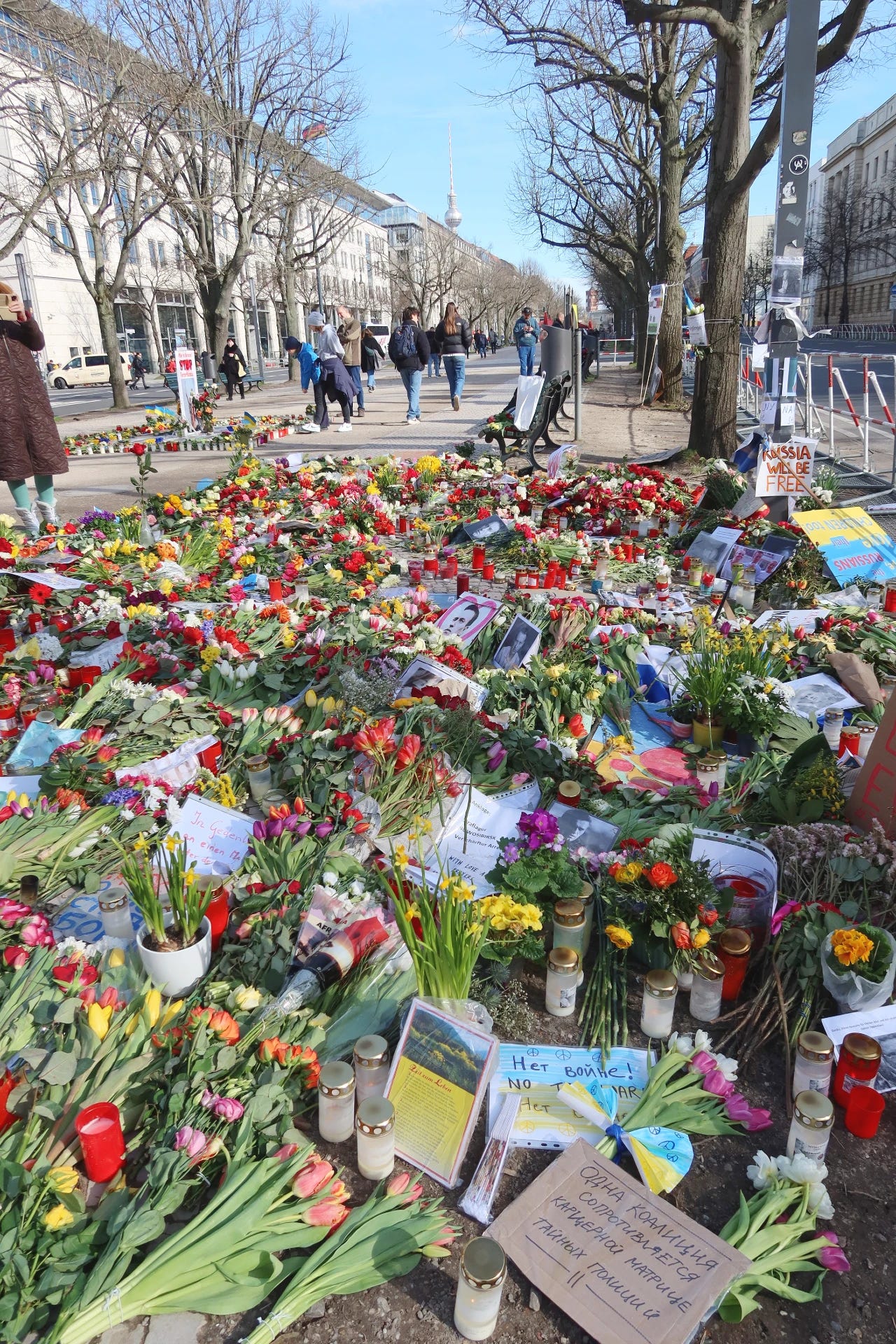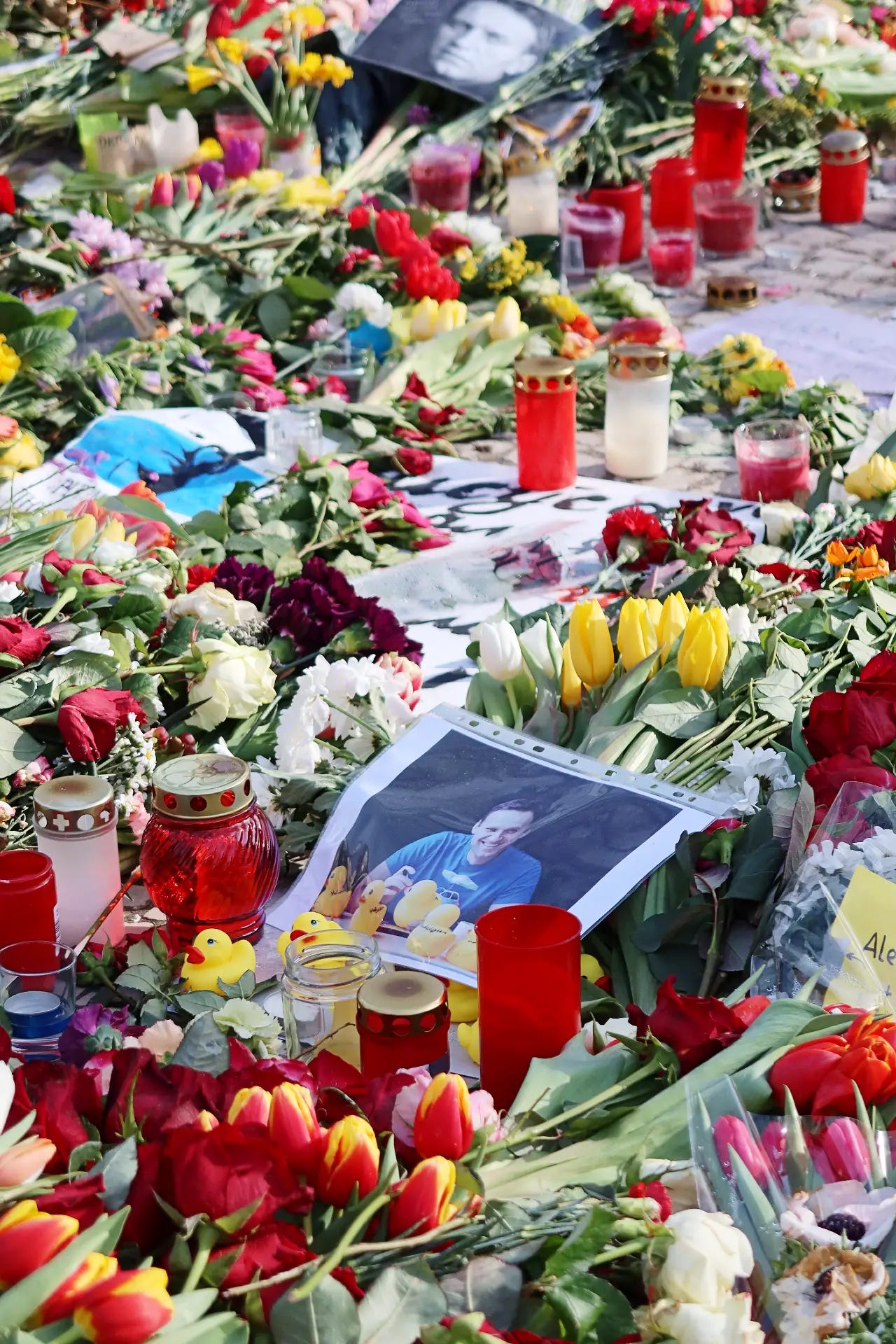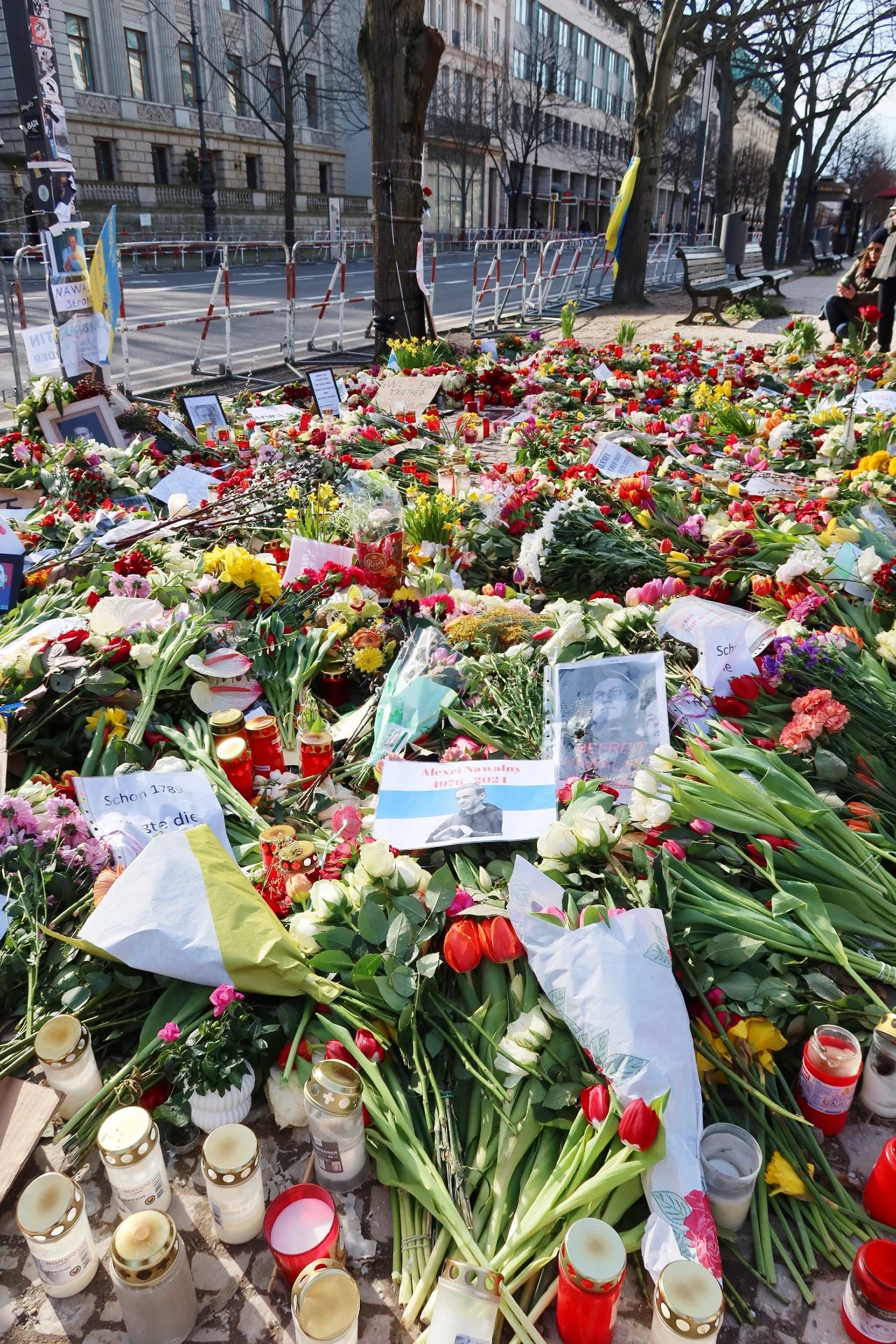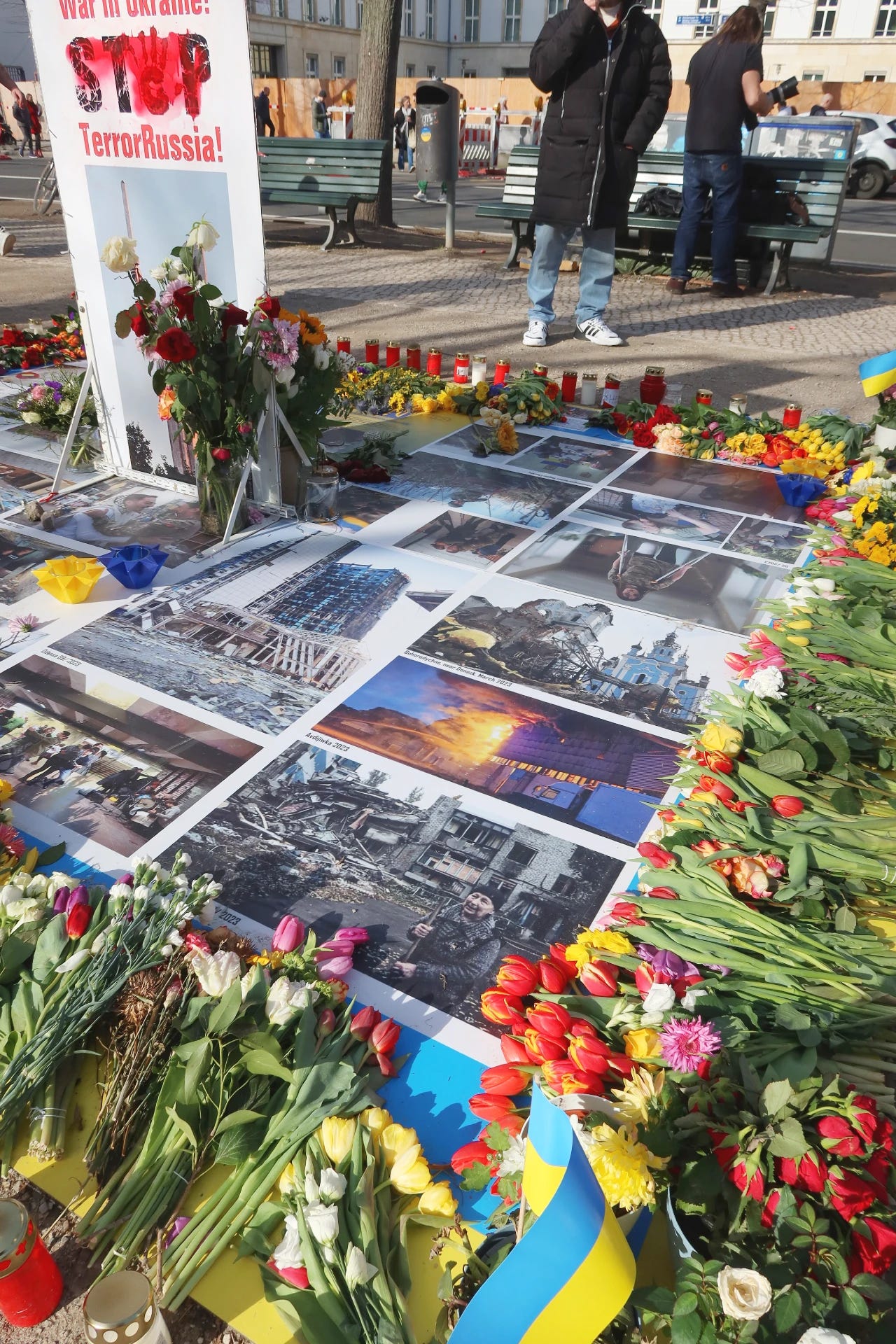A Tapestry of Tributes: Honoring Navalny in the Shadow of War.
Flowers and prayers bloom in Berlin for a fallen leader, echoing a global outpouring of grief and outrage.
According to orthodox Christian belief, the spirit ascends nine days after death. This day means reaching the "thrones", a realm of contemplative beauty. It's a day for family, for prayer, for honouring the journey.
Nine days after the announcement of his death, Navalny's body was returned to his mother on Saturday 24 February. Around the world, the Russian diaspora gathered in silent prayers and blooming memorials.
Here in Berlin, the area in front of the Russian Embassy on Unter der Linden was transformed into a memorial: a tapestry of flowers, signs, photos and phrases formed. Flowers met flowers, signs met signs: the Navalny floral memorial merged with the other street installation that has been facing the Russian building for two years, with photos of Ukrainian victims of the invasion. Both call for freedom and dignity. Both remain as a testament to an unshakable belief in a better tomorrow.
On Sunday too, people came, silently, to pray, to sigh, to meditate and to take pictures. After the noisy protest of a week ago, when anger and slogans were directed at the Kremlin, the atmosphere is now meditative.
Silence has fallen, but not the silence of surrender. Not to the Russians, not to the Ukrainians.
One week ago, same place.
UPDATE
Killing Navalny, why now?
The answer came on Monday 26 February in a YouTube video posted by Russian opposition leader Alexei Navalny's anti-corruption foundation. In the video, Navalny claims that the German government and the US tried to get him out of jail in a prisoner swap shortly before his death. The so-called zoo murderer Vadim Krasikov was to be transferred to Russia and Navalny to the West as part of a larger exchange. Krasikov murdered a Georgian of Chechen origin in the centre of Berlin on 23 August 2019 on behalf of the Russian government. He has been in a German prison since 2020.
The head of the Navalny Foundation, Mariya Pevchikh, said that she had been informed one day before Navalny's death on 16 February that the negotiations were in the home stretch. Pevchikh suggested that an offer had recently been made to the Kremlin via Russian billionaire Roman Abramovich, and that Putin had decided to get rid of Navalny at the last minute so as not to be pushed into making the swap.
Source: Der Spiegel










